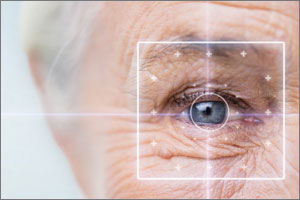
Helping a Visually Impaired Loved One
Nearly 12 million people in the United States who are 40 and older have a vision impairment, 1 million of which is blindness. Vision loss causes a substantial social and economic toll, including loss of productivity and diminished quality of life. While not all vision loss is preventable or treatable, there are steps you can take to help visually impaired loved ones in your life continue living the high-quality life they deserve.
What is a visual impairment?
Visual impairment is any condition affecting an individual’s ability to see, causing vision loss. According to the World Health Organization, the International Classification of Diseases uses four categories of vision impairment; mild, moderate, severe, and blindness. Depending on the cause of vision loss, the change may happen gradually or all at once.
While vision impairments are most common after age 50, they can happen to anyone. Common causes of vision loss with age include age-related macular degeneration, glaucoma, cataracts, and diabetic retinopathy.
- Age-related macular degeneration is a condition that blurs the central line of vision. It’s one of the most common causes of blindness in older adults. Most people don’t experience early signs of the disease, but as it progresses, they notice a blur or waves in the main line of sight.
- Glaucoma is a group of eye conditions that occur when there is damage to the optic nerve. Symptoms start slow, but people tend to lose their peripheral vision. There’s also a form of glaucoma called acute angle-closure glaucoma which, in addition to vision loss, may cause eye pain, headaches, nausea, and redness.
- Cataracts are cloudiness over the clear lens of the eye. Doctors can remove cataracts through surgery.
- Diabetic retinopathy is a condition among people with diabetes that may lead to complete vision loss. It occurs when there is damage to the retina, usually from poorly managed blood sugar. Early signs and symptoms may include seeing floaters or dark areas of vision.
How you can help your loved one
Don’t let your loved ones navigate their visual impairment alone. Consider the following to help them feel safer and more comfortable with their changing vision.
